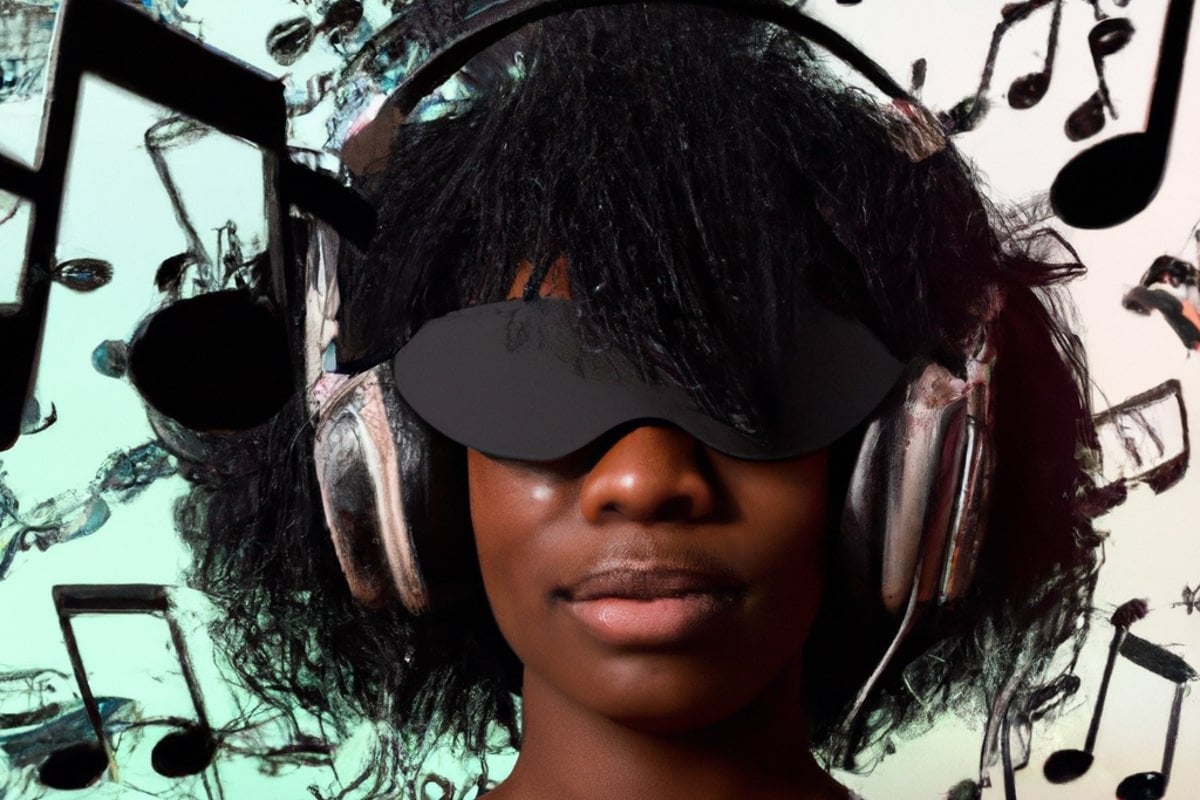Summary: Listening to music could reduce symptoms of cybersickness, which can cause dizziness, nausea and headaches when using virtual reality devices. The study discovered that joyful music significantly decreased the overall intensity of cybersickness, while both joyful and calming music substantially decreased nausea-related symptoms.
The study, also found that cybersickness caused a temporary reduction in verbal working memory test scores, and a decrease in pupil size, slowed reaction times and reading speed.
Key Facts:
- Researchers from the University of Edinburgh found that joyful music reduces cybersickness intensity in virtual reality, while calming and joyful music decreases nausea-related symptoms.
- The study involved 39 participants aged between 22 and 36 who rated their symptoms and did memory and reaction time tests after experiencing three rides in a virtual reality environment.
- Cybersickness can temporarily impair thinking skills and reaction times, which could limit the use of virtual reality in clinical and educational settings.
- Music could be an intervention to encourage greater use of virtual reality in these settings.
Source: University of Edinburgh
Listening to music could reduce the dizziness, nausea and headaches virtual reality users might experience after using digital devices, research suggests.
Cybersickness – a type of motion sickness from virtual reality experiences such as computer games – significantly reduces when joyful music is part of the immersive experience, the study found.
The intensity of the nausea-related symptoms of cybersickness was also found to substantially decrease with both joyful and calming music.
Researchers from the University of Edinburgh assessed the effects of music in a virtual reality environment among 39 people aged between 22 and 36.
They conducted a series of tests to assess the effect cybersickness had on a participant’s memory skills reading speed and reaction times.

Participants were immersed in a virtual environment, where they experienced three roller coaster rides aimed at inducing cybersickness.
Two of the three rides were accompanied by electronic music with no lyrics by artists or from music streams that people might listen to which had been selected as being calming or joyful in a previous study.
One ride was completed in silence and the order of the rides was randomised across participants.
After each ride, participants rated their cybersickness symptoms and performed some memory and reaction time tests.
Eye-tracking tests were also conducted to measure their reading speed and pupil size.
For comparison purposes the participants had completed the same tests before the rides.
The study found that joyful music significantly decreased the overall cybersickness intensity. Joyful and calming music substantially decreased the intensity of nausea-related symptoms.
Cybersickness among the participants was associated with a temporary reduction in verbal working memory test scores, and a decrease in pupil size. It also significantly slowed reaction times and reading speed.
The researchers also found higher levels of gaming experience were associated with lower cybersickness. There was no difference in the intensity of the cybersickness between female and male participants with comparable gaming experience.
Researchers say the findings show the potential of music in lessening cybersickness, understanding how gaming experience is linked to cybersickness levels, and the significant effects of cybersickness on thinking skills, reaction times, reading ability and pupil size,
Dr Sarah E MacPherson, of the University of Edinburgh’s School of Philosophy, Psychology & Language Sciences, said: “Our study suggests calming or joyful music as a solution for cybersickness in immersive virtual reality.
“Virtual reality has been used in educational and clinical settings but the experience of cybersickness can temporarily impair someone’s thinking skills as well as slowing down their reaction times.
“The development of music as an intervention could encourage virtual reality to be used more extensively within educational and clinical settings.”
The study was made possible through a collaboration between Psychology at the University of Edinburgh and the Inria Centre at the University of Rennes in France.
About this neuroscience research news
Author: Joanne Morrison
Source: University of Edinburgh
Contact: Joanne Morrison – University of Edinburgh
Image: The image is credited to Neuroscience News
Original Research: Closed access.
“Cybersickness, Cognition, & Motor Skills: The Effects of Music, Gender, and Gaming Experience” by Sarah E MacPherson et al. IEEE Transactions on Visualization and Computer Graphics
Abstract
Cybersickness, Cognition, & Motor Skills: The Effects of Music, Gender, and Gaming Experience
Recent research has attempted to identify methods to mitigate cybersickness and examine its aftereffects. In this direction, this paper examines the effects of cybersickness on cognitive, motor, and reading performance in VR.
Also, this paper evaluates the mitigating effects of music on cybersickness, as well as the role of gender, and the computing, VR, and gaming experience of the user.






